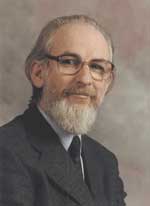Sensing Whilst Searching Banishes Holiday Frustration
Fancy a visit to Jordan? But could you end up with Andre instead of Amman?
Or raspberry ripple instead of Reykjavik?
 The internet is fast-becoming the most effective and popular method in which
The internet is fast-becoming the most effective and popular method in which
the UK’s holidaymakers research and book their holidays. However, according
to Crystal Semantics, the internet content and search company, existing
search technologies produce too many unsatisfactory and frequently bizarre
results, meaning that consumers are wasting considerable time by trawling
through irrelevant and unrelated information. With research showing that 57
per cent of UK holidaymakers research their holidays on the internet and one
in five holidaymakers now book their package holidays online* , accurate
holiday search results must be much further up the agendas of search
operators and online travel agents.For example, when searching for holiday destinations on the internet,
entering ‘Jordan’ into a search engine produces links to the Michael Jordan
fan club and websites for the glamour model Jordan before providing links to
the country. Alternatively, users need to be careful when booking holidays
online to destination names that appear in more than one country. For
example, you could try booking a holiday to Genoa, Italy, but end up booking
a holiday in Genoa, Nebraska!
In fact, Crystal Semantics estimates that approximately 186 million daily
internet searches provide such unsatisfactory results, whether holiday
related or not. This can be a nuisance especially when booking and
investigating holidays online, as the whole premise of booking online is
that it should alleviate stress and cut down on the amount of time usually
taken.The internet produces many other examples of holiday searching confusion.
Some are as follows:
á A search for Iceland yields results for the frozen food supermarket
á A search for Bermuda yields results for paranormal sites (Bermuda
Triangle) and bermuda shorts
á A search for Turkey yields results for recipes and places to buy poultry.
Crystal Semantics has developed a technology called the ‘Sense Engine’,
which produces relevant search results by utilising the senses of words,
instead of statistical algorithms as traditionally used in search engines.
Each word in the English language has been analysed to determine its
potential to discriminate which context the search should cover. The ‘Sense
Engine’ identifies all the likely search words, advises the user of the
different contexts the search should cover, and categorises the results
encyclopaedically providing users with results that are relevant to their
request.
ADVERTISEMENT
Using the ‘Sense Engine’ technology, companies can provide internet users
with the information they actually want, whether it is through search and
navigation, e-commerce or contextual advertising. For instance, when
searching for ‘turkey’, searchers could be offered the option of ‘the
country’ or ‘the bird’ before receiving more appropriate results.
David Crystal, chairman of Crystal Semantics, said: “Online shopping is
associated with convenience, cost reduction and time savings. Travel
websites have become one-stop shops for everything you need: from
researching the ins and outs of various destinations and packages, to
actually buying your holiday. Making sense of internet searches can improve
user experience of the web, and drive more people to use it as a tool to
make purchases. The ‘Sense Engine’ enables searches on the internet to be
conducted whilst filtering out the superfluous results and presenting you
with the exact matches that you are looking for.”
——-

